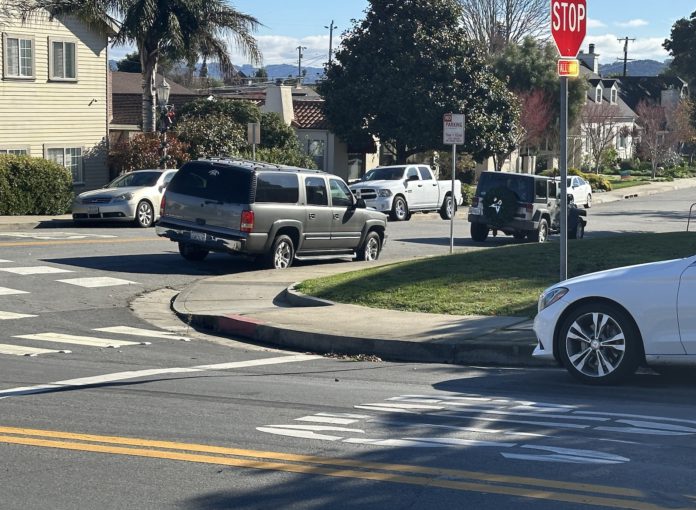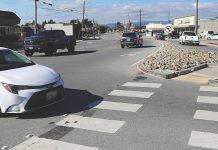
California lawmakers in 2024 introduced 4,821 bills, but most of them did not become law, having been tossed or otherwise rejected during the months-long legislative process during which most never saw the light of day.
Just 1,206 made it to Gov. Gavin Newsom’s desk, with 1,017 getting signed into law and the others vetoed.
Such is the process every year, as senators and assembly members seek to fine-tune the state’s legal machinations. California residents, then, must adjust to a spate of new laws that affect nearly every facet of life.
Here are a few of the more notable Assembly Bills (AB) and Senate Bills (SB) that take effect this year, not the least of which are 10 laws that target retail theft.
Among other things, these laws increase penalties for repeat offenders and allow felony charges for some crimes.
Gov. Gavin Newsom signed the bills in August.
Retail theft
AB 1779—Prosecutors can consolidate crimes from multiple jurisdictions into one case
AB 1802—Permanently allows felony charges for organized retail theft. Indefinitely extends the CHP’s Property Crimes Task Force.
AB 2943—Targets serial retail theft for crimes committed within 90 days of each other
AB 3209—Allows restraining orders against theft suspects
SB 905—allows prosecution of auto burglary whether the vehicle was locked or not.
SB 982—Laws targeting organized retail theft are now permanent.
SB 1416 —Increases penalties for selling, exchanging, or returning stolen property.
Food delivery services
SB 1490—Requires food delivery services such as Doordash and GrubHub to specify the fees they charge to both customers and restaurants.
Menstrual products for incarcerated people
AB 1810—Requires jails and prisons to provide menstrual products to female inmates, without them having to first request them.
New parking rule
AB 413—Also called the “daylighting law,” this prohibits parking from within 20 feet of a corner. The law was designed to eliminate blind spots, increase visibility and make it easier for drivers to see pedestrians and other vehicles.
Workers rights
SB 988—Freelance Worker Protection Act requires employers to pay freelance workers within the time outlined in their contract, and within 30 days if there is no contract.
Housing
AB 2347—This law changes the time tenants have to respond to eviction notices from five days to 10.
SB 1395—Allows for streamlined zoning and faster building for single-room housing for unhoused people, and lets developers bypass environmental review for the projects.
Reckless Driving and Sideshows
AB 1978—Allows police to seize vehicles used in a sideshow without arresting the suspect.
AB 2186—People who race in a parking facility can be arrested and their vehicle impounded for 30 days.
AB 2807—Defines a “sideshow” and a “street takeover” as the same type of event.
AB 3085—Allows police to impound vehicles used in a sideshow without a warrant.
Electric Bicycle Safety
AB 1774—Prohibits modifying an electric bicycle’s speed capability and from selling a product or device that can modify the speed capability.
Miscellaneous
AB 2645 Lackey—Electronic toll collection systems can share license plate data with law enforcement during emergency alerts.
ABX2-1—Requires oil refiners to maintain a minimum inventory of fuel to avoid supply shortages that create higher gasoline prices.
AB 1955—Prohibits schools from disclosing a student’s gender identity or sexual orientation to their parents without their consent.
SB 399—Employers cannot force their employees to attend meetings during which the employer’s political or religious views are expressed.
SB 1100—People looking for a job will no longer be required to have a driver’s license, unless one is needed for the job.
AB 1775 – Allows Amsterdam-style cannabis-smoking lounges, and allows cannabis businesses to sell food and drink and to offer entertainment.
AI laws
SB 942 California AI Transparency Act—Requires companies that create artificial intelligence systems to also provide a tool to detect AI.
SB 926—Makes it a crime to use AI to create intimate images of another person without their consent.SB 981—Requires social media companies to offer a way to report “deepfake” intimate images created by AI.











New parking rule
AB 413—Also called the “daylighting law,” this prohibits parking from within 20 feet of a corner. The law was designed to eliminate blind spots, increase visibility and make it easier for drivers to see pedestrians and other vehicles.
Let’s hope Watsonville Police start giving tickets for this new law. On many streets in Watsonville cars are parked so close to corners, other drivers can’t see cars coming as they attempt to cross. Get busy Watsonville Police and start making people parking on Lincoln, Sudden and other streets obey the new laws.
I can share 3 intersections (within 2 blocks of each other!) where not only does this happen, the sloped handicap accessible corner to utilize the sidewalk is blocked by some idiot trying to park on a corner – 3 weekends out of the month. Of course, as you’d expect, this is also on a busy entrance to a apartment complex where the stop sign is blown regularly. 2 neighborhood kids have been struck by cars twice in the last year only after I had to lobby others in the neighborhood to complain that there was no street striping. OK, no need to ask, it’s HERMAN CT and SUNNY HILLS DRIVE and the surrounding two intersections. You got it out of me lol – only a matter of time until us citizens take things into our own hands, get on it 🙂